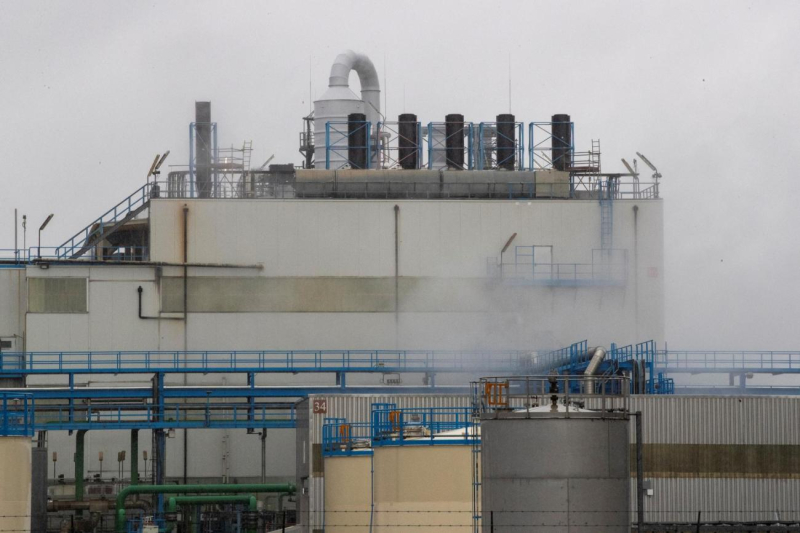
BELGA/AFP/Archives – NICOLAS MAETERLINCK The 3M factory during a pilot installation for the purification of PFAS, on the Oosterweel construction site, in Belgium.
Behind a supposedly impartial scientific article financed by lobbies, the chemical industry is orchestrating a manipulation to make the ban on PFAS in Europe fail. A striking example of how science can be instrumentalized to serve industrial interests.
As part of their Forever Lobbying Project investigation, Le Monde and its partners were interested in a particularly pompous article entitled “Grouping of PFAS for the assessment of risks to human health”, written by “a panel of independent experts”.
Published in 2022, it has been used and cited many times by lobbies to oppose the ban on PFAS (eternal pollutants) in Europe. This group of toxic chemicals, widely present in the environment, is at the heart of the news because it poisons almost everyone, particularly through running water. And behind the scientific facade of this article, there is a much more cynical design: that of a manipulation, financed by the American Chemistry Council (ACC), aimed at sowing doubt on the assessment of risks to human health.
This article, which is supposed to analyze the risks of PFAS, relies on a contested methodology. Not only are the majority of the experts involved linked to the chemical industry, but the source of funding only becomes evident very late in the study. Dissenting voices, such as those of chemist Ian Cousins or toxicologist Jamie DeWitt, point out the biases of this pseudo-expertise, manipulated to defend the interests of PFAS producers. Le Monde reveals the extent of the network of influence set up to avoid any ban.
Beyond this specific case, this phenomenon of “science à la carte” clearly shows that panels of experts are carefully selected for their ability to distort scientific reality. David Michaels, a professor of public health, calls this method the deliberate manufacture of scientific uncertainty, a strategy that perverts public debate and prevents informed policy decisions. Let's dare to say it: this is not the first time we've seen it…
You liked the article ? It mobilized our editorial staff, which lives only on your donations.
Information has a cost, especially since competition from subsidized editorial staff requires increased rigor and professionalism.
With your support, France-Soir will continue to offer its articles for free because we believe that everyone should have access to free and independent information to form their own opinion.
You are the sine qua non condition for our existence, support us so that France-Soir remains the French media that makes the most legitimate ones express themselves.

